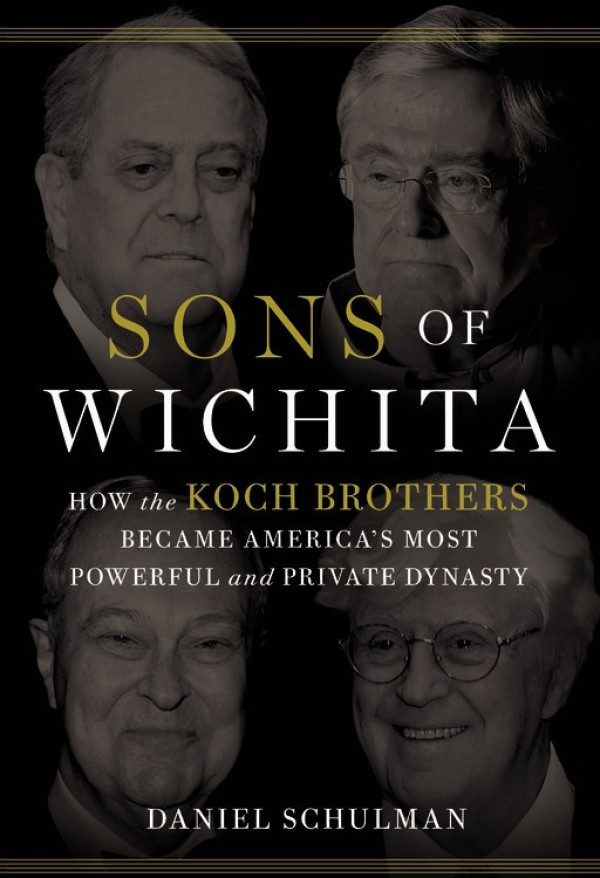MOTHER JONES: After eight years at MIT and a consulting firm, Charles returned to Wichita to learn the intricacies of the family business. Together, he and David would build their father’s Midwestern company, which as of 1967 had $250 millionin yearly sales and 650 employees, into a corporate Goliath with $115 billion in annual revenues and a presence in 60 countries. Under their leadership, Koch Industries grew into the second-largest private corporation in the United States (only the Minneapolis-based agribusiness giant Cargill is bigger).
Bill, meanwhile, would become best known for his flamboyant escapades: as a collector of fine wines who embarked on a litigious crusade against counterfeit vino, as a playboy with a history of messy romantic entanglements, and as a yachtsman who won the America’s Cup in 1992, an experience he likened, unforgettably, to the sensation of “10,000 orgasms.” Koch Industries made its money the old-fashioned way—oil, chemicals, cattle, timber—and in its dizzying rise, David and Charles amassed fortunes estimated at $41 billion apiece, tying them for sixth place among the wealthiest people on the planet. (Bill ranks 377th on Forbes‘ list of the world’s billionaires.) The company’s products would come to touch everyone’s lives, from the gas in our tanks and the steak on our forks to the paper towels in our pantries. But it preferred to operate quietly—in David’s words, to be “the biggest company you’ve never heard of.” But if Charles and David’s industrial empire stayed under the radar, their political efforts would not remain so private. After spending decades quietly trying to mainstream their libertarian views and remake the political landscape, they burst into the headlines as they took on the Obama administration and forged a power center in the Republican Party.
Politicians, as one of Charles’ advisers once put it, are stage actors working off a script produced by the nation’s intellectual class. Some of the intellectual seeds planted by the Kochs and their comrades would germinate into one of the past decade’s most influential political movements: Though the intensely private brothers downplay any connection, they helped to provide the key financing and organizational support that allowed the tea party to blossom into a formidable force—one that paralyzed Congress and ignited a civil war within the GOP. After backing a constellation of conservatives, from Wisconsin Gov. Scott Walker to South Carolina’s Jim DeMint, Charles and David mounted their most audacious political effort to date in the 2012 presidential campaign, when their fundraising network unleashed an estimated $400 million via a web of conservative advocacy groups.
Just as their father, a founding member of the John Birch Society, had once decried the country’s descent toward communism during the Kennedy era, the brothers saw America veering toward socialism under President Obama. Charles, entering his late 70s, had not only failed to see American society transformed into his libertarian ideal; with this new administration, things seemed to be moving in the exact opposite direction. Now he and David, along with other allies, would wage what he described as the “mother of all wars” to defeat Obama and hand Republicans ironclad congressional majorities. Yet for all the attention the Kochs—including the “other brothers,” Frederick and Bill—have received, America knows little about who they really are. Charles and David have gained a reputation as cartoonish robber barons, powerful political puppeteers who with one hand choreographed the moves of Republican politicians and with the other commanded the tea party army. And like all caricatures, this one bears only a faint resemblance to reality. MORE
![]() Biographer Daniel Schulman explains how the Koch Brothers became America’s most powerful and private dynasty, today on NPR’s Fresh Air
Biographer Daniel Schulman explains how the Koch Brothers became America’s most powerful and private dynasty, today on NPR’s Fresh Air

